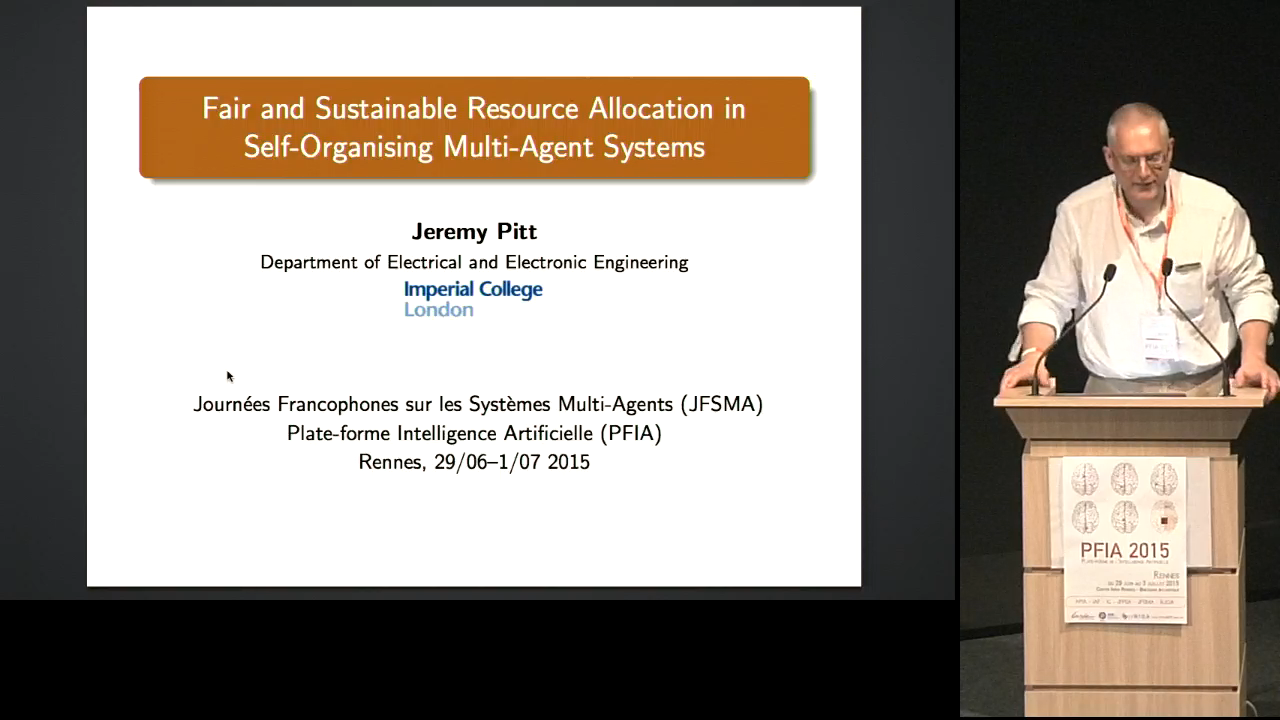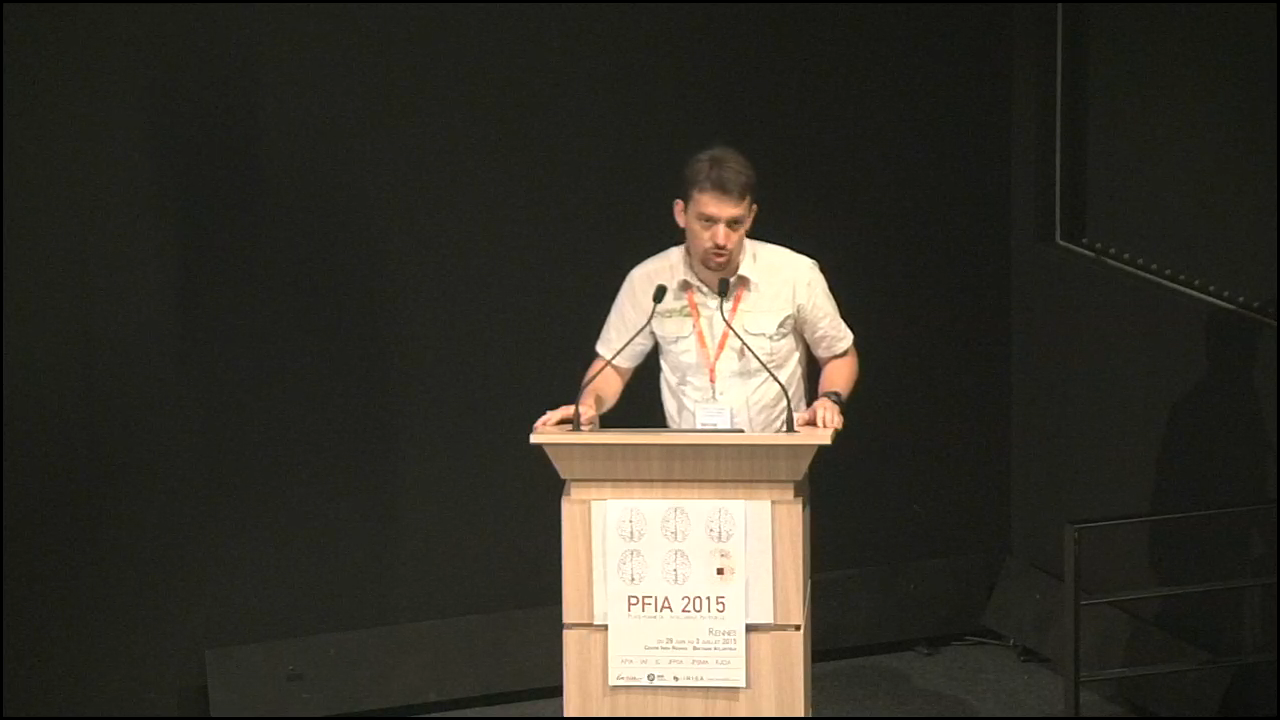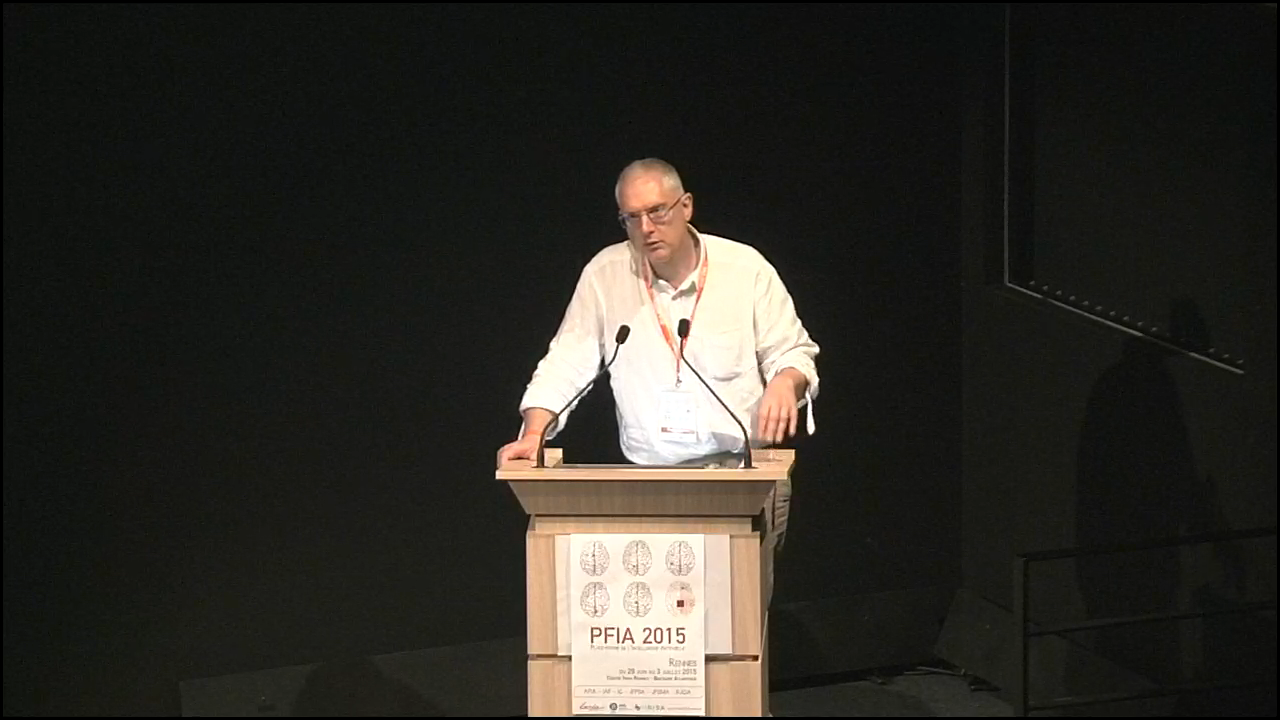 |
|||
|---|---|---|---|
Plate-forme Intelligence Artificielle Rennes 2015Espace conférences Inria - Rennes29 juin - 3 juillet 2015 |
|||
Les conférences invitées |
|||
JFSMA Conference
|
|||
| Introduction | The Questions | The slides | Abstract | Back to Contents Page |
|---|
|
The JFSMA conference's talk is introduced by Laurent Vercouter, president of JFSMA and member of |
|---|
Fair and Sustainable Resource Allocation in Self-Organising Multi-Agent SystemsClick on the image to open the vidéo (52:15 mn)by |
Jeremy PittProfessor of Intelligent and Self-Organising Systems at Department Department of Electrical and Electronic Engineering in Imperial College London |
|
Four questions of the audience to Jeremy Pitt (8:23 mn) question 2 at 2:26 mn ; question 3 at 3:23 mn ; question 4 at 5:32 mn |
|
Edition page Web: Alain Crenn - Service Communication & Médiation/ audiovisuel |



